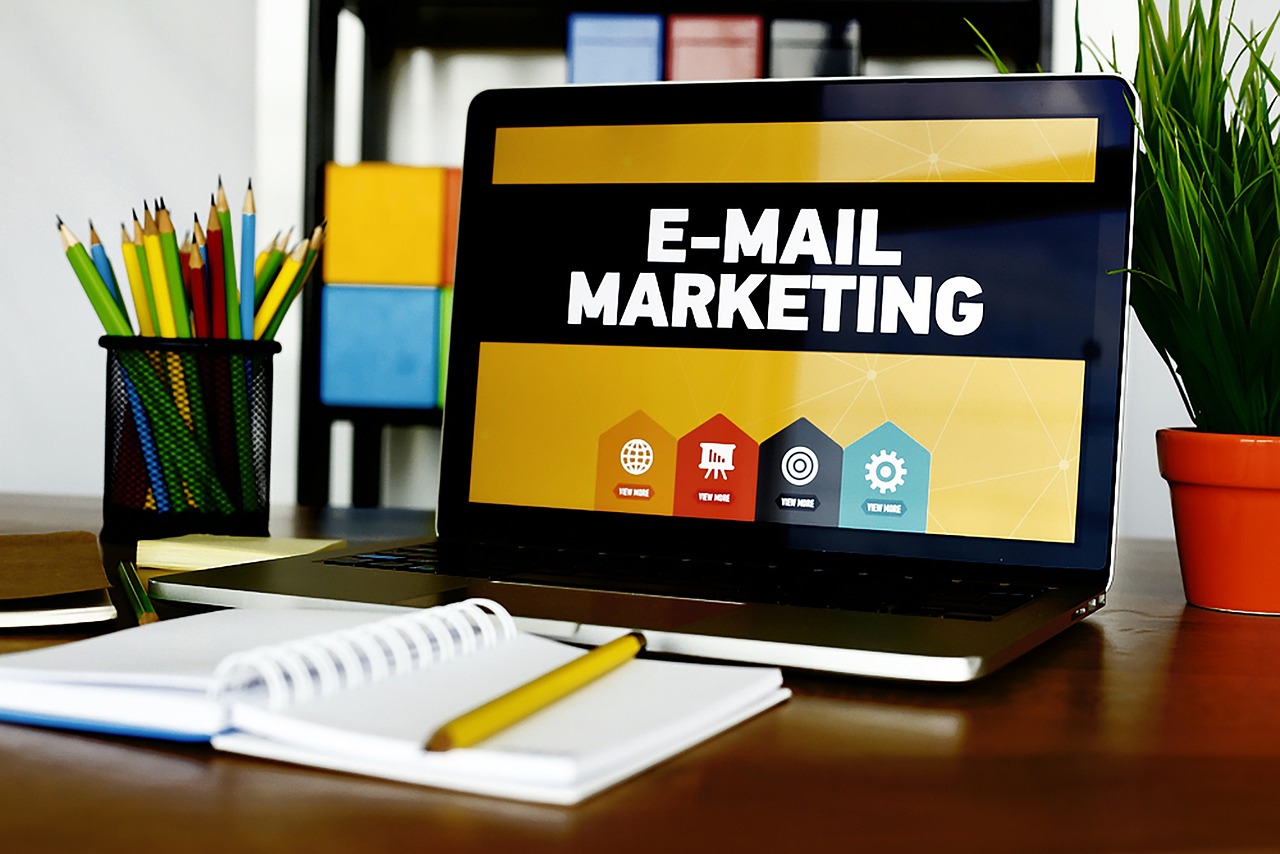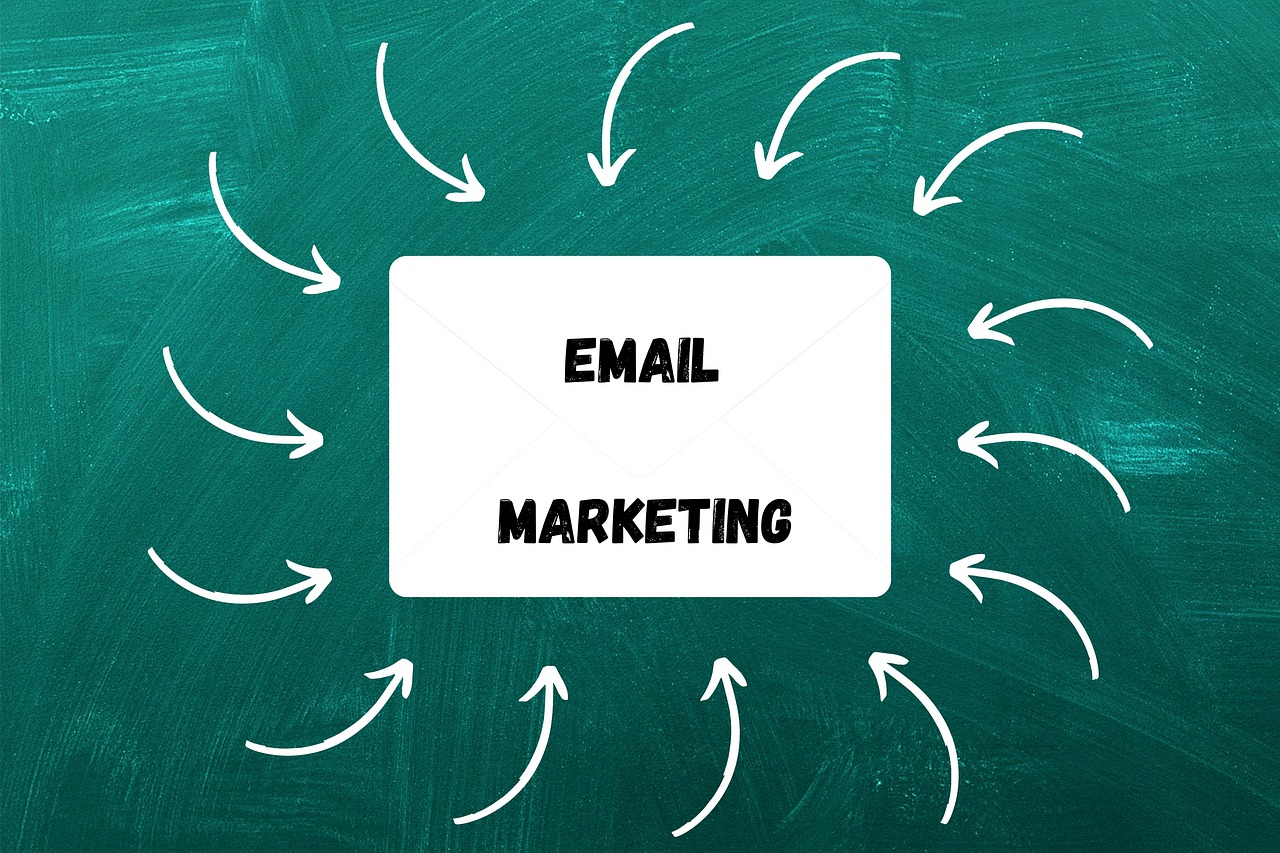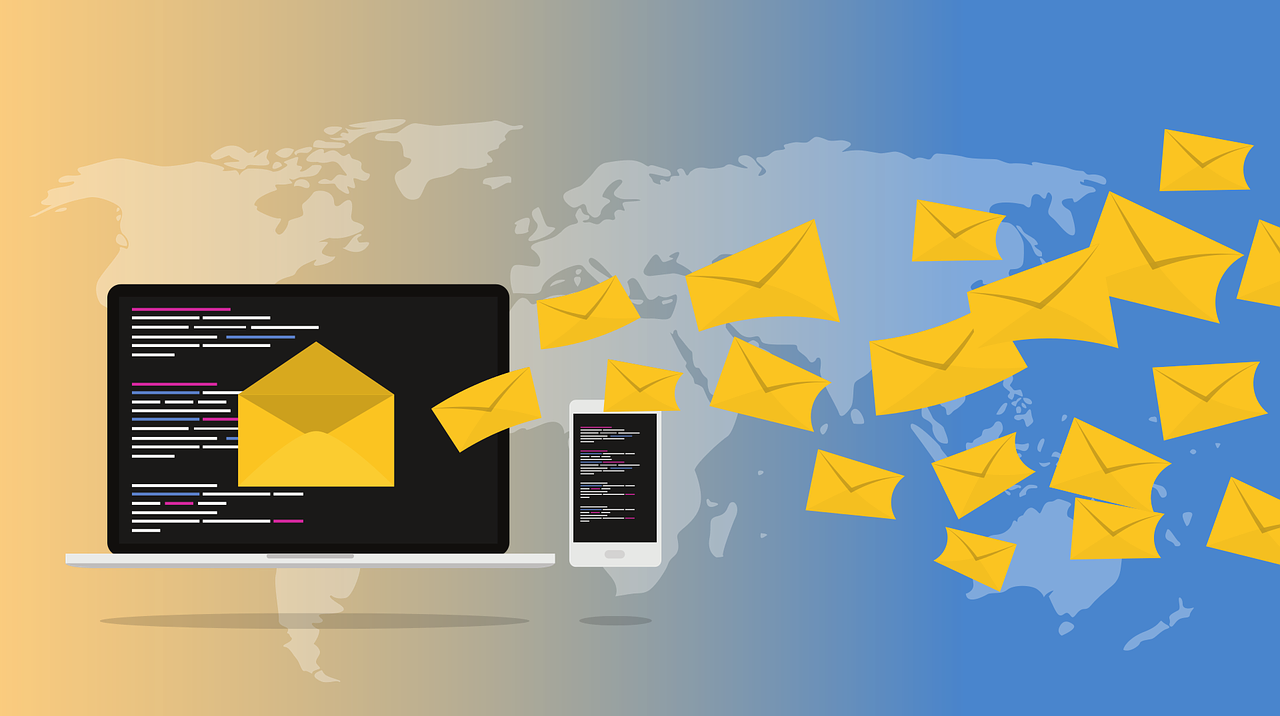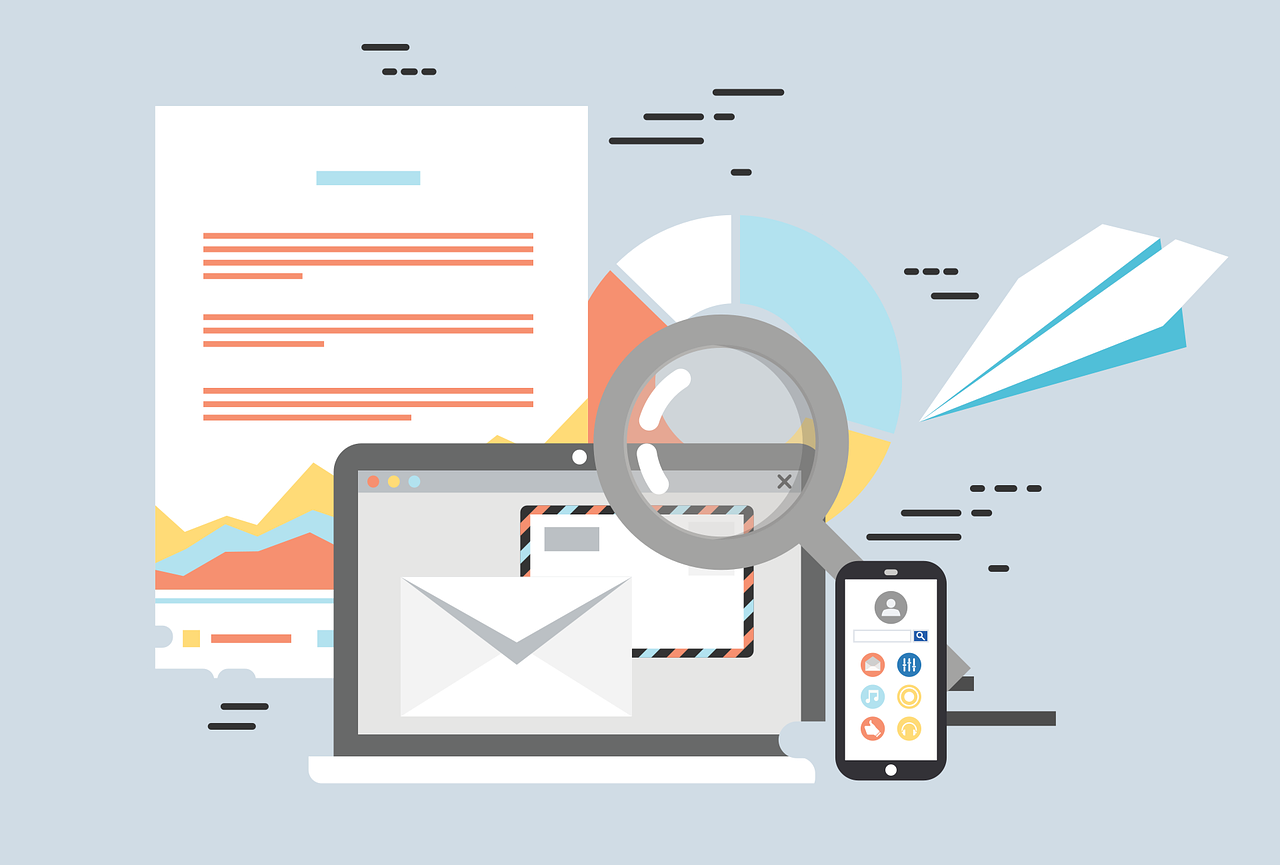
Are you ready to accelerate your marketing efforts, boost conversions, and maximize your return on investment (ROI)? Look no further than email marketing. It’s a proven powerhouse in digital marketing, allowing you to connect directly with your target audience and deliver personalized messages that hit the mark. However, before you embark on your email marketing journey, it’s crucial to understand the pricing landscape. That’s where our email marketing pricing guide comes in.
Our email marketing pricing guide will equip you with all you need to make strategic choices, fine-tune your marketing budget, and unlock the true potential of your email marketing efforts. Dive in now and unlock the secrets to email marketing pricing success for the best email marketing portfolio.
What Are the Types of Email Marketing Pricing?

When it comes to email marketing pricing, there are several different models that service providers may offer. Understanding the different types of email marketing pricing can help businesses choose a model that aligns with their needs and budget. Here are the main types of email marketing pricing:
1. Pay-Per-Email Pricing Model
In the pay-per-email model, businesses pay a fixed price for each email sent. This pricing model is suitable for businesses with irregular or infrequent email campaigns. It offers flexibility as businesses only pay for the emails they send, but the cost per email may be higher than subscription-based pricing.
2. Monthly Subscription Pricing Model
Monthly subscription pricing is one of the most common models for email marketing services. The monthly subscription model involves paying a fixed monthly fee in exchange for a specific service level, typically including a specified number of emails or a specific subscriber limit.
This model is often tiered, with different pricing levels based on the email list size or volume. It also provides flexibility and is often preferred by businesses with regular email communication needs.
3. Pay-As-You-Go Pricing Model
The pay-as-you-go model allows businesses to purchase email credits or tokens that can be used to send emails. This model suits businesses with varying email volumes and provides cost control.
4. Hybrid Pricing Models
Hybrid pricing models combine elements of different pricing models to provide more flexibility and customization. For example, an email marketing agency may offer a base monthly subscription fee that covers a certain number of emails or subscribers and then charge an additional fee for any emails or subscribers beyond the base limit.
This model allows businesses to have a baseline subscription while accommodating any spikes in email volume or list size.
5. Customized Enterprise Pricing Models
Enterprise-level businesses with unique requirements often negotiate customized pricing models tailored to their needs. These models may include additional services, features, or dedicated support not offered in standard pricing packages.
The pricing structure is typically determined through direct discussions and agreements between the business and the email marketing service provider, taking into account the scale and complexity of the business’s email marketing operations.
6. Email Marketing Monthly Retainer
This pricing model involves entering into a long-term agreement with an email marketing agency or professional. The email marketing monthly retainer fee covers ongoing email marketing services, strategy development, campaign planning, execution, optimization, and reporting.
The monthly retainer model provides continuous support and ensures a dedicated team is available to manage the client’s email marketing efforts. The email marketing monthly retainer fee is typically based on the level of service needed and the business size.
What Are the Types of Email Marketing Services?

1. Email Campaign Creation and Management
Email marketing campaign creation and management services include strategizing, planning, designing, creating content, setting up automation workflows, and scheduling emails. These services are typically priced based on the complexity of the email marketing campaign and the number of emails involved.
2. List Management and Segmentation
List management and segmentation services involve maintaining the email list, managing subscriber data, segmenting the list based on various criteria, and implementing targeted messaging. The email marketing agency pricing for these services is influenced by the size of the email list and the level of segmentation required.
3. Automation and Behavioral Triggers
Automation services include setting up triggered emails based on user behavior or specific events. Pricing for automation services depends on the difficulty of the entire process and how many automation workflows have been implemented.
4. Email Design and Template Customization
Email design and template customization services focus on creating visually appealing and brand-aligned email templates. Pricing depends on how complex the design is, the level of customization required, and responsiveness across different devices.
5. A/B Testing and Optimization
A/B testing and optimization services involve testing different elements of emails, such as subject lines, CTAs, design variations, and content, to identify the most cost-effective approach. These services are typically priced based on the number of tests conducted and the level of analysis provided.
6. Analytics and Reporting
Analytics and reporting services include monitoring key email performance metrics, analyzing data, and providing actionable insights to improve campaign performance. Pricing for these services depends on the level of detail in reporting and the analysis frequency.
Does the Email Marketing Agency Cost Vary by Industry?

Email marketing costs can vary across different industries due to different factors, including the nature of email marketing software price, the industry, target audience, campaign complexity, and overall email marketing strategy. While it’s challenging to provide specific cost figures for each industry, you can estimate email marketing costs based on industry characteristics:
a). E-commerce and Retail
The e-commerce and retail industry relies heavily on email marketing to drive sales, promote products, and engage customers. The email marketing costs can vary depending on the business size, the number of subscribers, and the frequency of email marketing campaigns.
- Small to medium-sized e-commerce businesses with a subscriber base of around 10,000 may spend approximately $500 to $1,500 monthly.
- Larger retailers with a subscriber base exceeding 100,000 and more complex campaign requirements may allocate an average cost budget of $2,000 to $5,000 monthly or higher.
b). Technology and Software
Technology and software companies often have more targeted and niche audiences. The costs can be influenced by factors such as the level of personalization and automation required, the complexity of campaign workflows, and the need for integration with other systems.
- Small to medium-sized technology or software companies with a subscriber base of around 5,000 to 10,000 may budget an average cost between $500 and $2,000 monthly for email marketing services.
- Larger technology companies with a subscriber base exceeding 50,000 may invest an average cost of $3,000 to $10,000 monthly, depending on campaign complexity and personalization needs.
c). Financial Services
This industry, including banks, insurance companies, and investment firms, often uses email marketing to communicate with customers, provide updates, and promote financial products and services. Costs in this industry can vary depending on the scale of the institution, the number of subscribers, regulatory compliance requirements, and the level of personalization.
- Small to medium-sized financial institutions, such as banks or insurance companies, with a subscriber base of 5,000 to 20,000 may allocate a monthly budget of $1,000 to $3,000 for email marketing.
- Larger financial services organizations with a subscriber base of 50,000 or more may spend $5,000 to $15,000 monthly or higher, considering the need for sophisticated segmentation, compliance requirements, and personalized communication.
d). Hospitality and Travel
The hospitality and travel industry heavily relies on email marketing to attract customers, promote special offers, and provide booking updates. Costs can vary based on the business size, the campaigns’ complexity, e.g., targeting different destinations or customer segments, and the frequency of communication.
- Small hotels or travel agencies with a subscriber base of around 5,000 to 10,000 may set aside a monthly budget of $500 to $2,000 for email marketing.
- Larger hospitality chains or travel companies with a subscriber base exceeding 50,000 may invest $3,000 to $10,000 monthly or more, depending on the complexity of email campaigns, targeting different destinations, and personalization requirements.
e). Nonprofit and Education
Nonprofit organizations and educational institutions often leverage email marketing to engage donors, communicate with supporters, and promote events or fundraising campaigns. Costs in this sector can vary based on the organization’s size, the subscriber base, and the frequency of email communications.
- Small to medium-sized nonprofit organizations or educational institutions with a subscriber base of 5,000 to 20,000 may allocate a monthly budget of $500 to $2,000 for email marketing.
- Larger nonprofits or educational institutions with a subscriber base exceeding 50,000 may spend $3,000 to $10,000 monthly or higher, considering the need for fundraising campaigns, event promotions, and donor engagement.
Is Pricing the Same for an Email Marketing Agency as for an Individual Professional?

While the general principles and factors influencing email marketing pricing may apply to email marketing agencies and individual email marketers, there can be some differences in the pricing guide.
Email Marketing Agency Pricing Guide
- Agency Overhead Costs: Email marketing agencies often have higher overhead costs than individual professionals. These costs include office space, employee salaries, email marketing software subscriptions, and other operational expenses. Consequently, email marketing agency pricing may reflect these additional costs.
- Range of Services: Email marketing agencies typically offer more services than individual professionals. They may provide comprehensive solutions encompassing email marketing strategy development, campaign management, email marketing calendar development, automation workflows, analytics, and more. This extensive service offering can impact the overall pricing structure.
- Team Expertise: Agencies often have a team of specialists, including strategists, designers, copywriters, and analysts, who collaborate on projects. The team’s collective expertise may contribute to the agency’s pricing, as the client benefits from the diverse skill set and knowledge of multiple professionals.
- Scalability: Email marketing agencies are often equipped to handle larger email marketing campaigns and clients with higher email volumes. Their pricing may reflect the scalability of their services and the ability to handle complex campaigns that require advanced segmentation, personalization, and automation.
Email Marketing Professional Pricing Guide
- Individual Expertise: An email marketing professional may have specific expertise or niche specializations. Their pricing may reflect their unique skill set and experience level.
- Personalized Attention: Working with individual email marketers often provides a more personalized and focused experience. The pricing may reflect the level of individual attention, customization, and direct communication with the client.
- Flexibility: Individual email marketers may offer more flexibility regarding pricing options and project scope. They may be open to negotiating custom packages based on specific client needs and budgets.
- Lower Overhead Costs: Individual professionals typically have lower overhead costs than email marketing agencies, which can influence their pricing. They may have fewer operational expenses, allowing them to offer more competitive rates.
What Are the Factors that Influence the Email Marketing Pricing?

Email marketing pricing can vary significantly based on several factors. To understand the email marketing cost structure and make informed decisions, it’s crucial to consider the following elements that influence email marketing pricing:
1. Email Volume and Frequency
The email marketing campaign frequency can impact the email marketing agency’s cost. Higher email volumes or more frequent campaigns typically need additional resources, including time, staff, and infrastructure which may incur higher costs.
As a result, email marketing service providers may charge higher fees for businesses with larger email volumes or frequent campaign schedules.
2. Size of the Email List
The size of your email list directly affects the effort required for list management, segmentation, and email sending. Managing and maintaining a more extensive email list demands more resources and infrastructure. As a result, email service providers may charge higher fees for larger lists due to increased server resources and deliverability considerations.
3. The Complexity of Design and Content
The complexity of email design and content can influence email marketing costs. Intricate and visually appealing designs and complex content requirements require additional time and resources. If you need custom email marketing templates, HTML coding, interactive elements, or sophisticated design work, the pricing model may be higher to reflect the level of expertise and effort involved.
Similarly, if your content needs are extensive, such as personalized dynamic content or language localization, it may require extra effort from the email service provider, resulting in higher pricing.
4. Customization and Personalization Requirements
Your email marketing campaigns may incur additional costs if they need extensive customization, dynamic content, and personalization based on user behavior. Personalization often involves integrating with customer relationship management (CRM) systems, segmenting the audience, and creating dynamic content that speaks to individual subscribers. The level of customization and personalization required can impact the email marketing cost.
5. Automation and Segmentation Needs
Advanced automation and segmentation features can drive email marketing success but may also affect the cost of email marketing. Automation allows you to set up triggered emails based on user behavior or specific events, while segmentation enables targeted messaging.
Implementing and managing complex automation workflows, creating personalized triggers, and maintaining segmentation strategies require additional expertise and effort, which can be reflected in pricing email marketing services.
6. Cost of Email Marketing Tools
Different email marketing tools come with varying pricing structures. Some tools offer free or low-cost basic features, while others provide more advanced functionalities at a higher price point.
The cost of the tools can depend on factors such as how many subscribers, the volume of emails sent, and the level of email automation or customization required. It’s essential to consider different tools’ pricing plans and features when evaluating their suitability for your budget and campaign requirements.
7. Additional Services or Features
Beyond the core email marketing functionalities, email service providers may offer additional services or features that impact pricing. These may include split testing (A/B testing) to optimize email performance, advanced analytics and reporting, dedicated account management, integration with other platforms or third-party applications (e.g., CRM, e-commerce systems), and deliverability consulting. The inclusion of these additional services can contribute to the overall pricing structure.
8. Integration with Other Platforms
Integrating email marketing with other platforms, such as CRM systems, e-commerce platforms, or marketing automation tools, may incur additional costs. Seamless integration often requires technical expertise, custom API development, data synchronization, and ongoing maintenance. The complexity and effort involved in integrating multiple platforms can influence pricing.
9. Cost of Professional Services and Expertise
The email marketing service provider’s reputation, expertise, and experience can also influence pricing. Well-established email marketing agencies with a proven track record and a strong portfolio often command higher fees due to their specialized knowledge, industry recognition, and the added value they provide. They may offer strategic guidance, advanced campaign optimization, and tailored solutions, contributing to the pricing structure.
Conclusion on Email Marketing Price Guide

In a world where every marketing dollar counts, understanding the nuances of email marketing pricing is the key to maximizing your returns. By understanding these intricacies of email marketing pricing, you can unlock the secrets to cost-effective campaigns that drive results and propel your business forward.
However, remember, although email marketing seems to be on the traditional end of digital marketing, it’s not just a cost. It builds relationships with existing customers, drives conversions, and nurtures customer loyalty. The right pricing strategy allows you to allocate resources effectively and optimize your campaigns for maximum impact.
